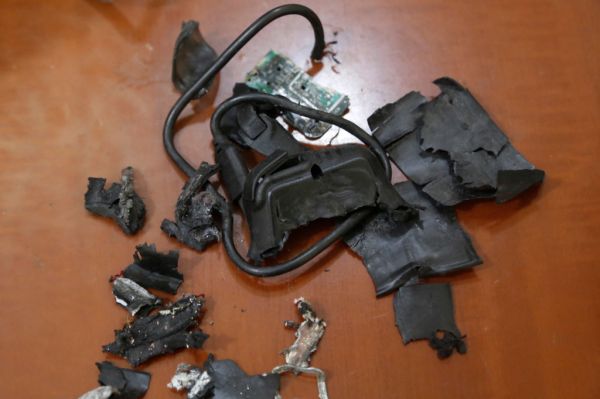If Donald Trump loses the election, to hear him and his campaign tell it, the fate of the Republican Party should be the least of our concerns: His defeat would spell the end of the nation itself and all that we hold dear.
But let’s assume that Trump and company are exaggerating and that the country continues to exist. What would the GOP look like after he loses—again?
This scenario seems to be getting a lot of attention lately, perhaps because Trump himself has been emphasizing that if he loses—again—it will be because of fraud—again. Such rhetoric does not exude confidence in his prospects.
Some observers seem to think the GOP might not survive a Trump defeat. Under the headline “Potential Trump loss threatens destruction of modern GOP,” Axios predicted that the party would be plagued by an “identity crisis,” a “brutal power struggle” and “years in the wilderness.” Why? Because, “Never before has a party's identity been so deeply entwined with the fate, fortunes and flaws of one man.”
Color me skeptical.
Oh, I agree with the power struggle part. But we’re already almost a full decade into the Republican identity crisis. And as for years in the wilderness … maybe.
But America’s major parties don’t tend to spend that much time in the wilderness because of the way our system works. If Kamala Harris turns out to be an unpopular president—which is hardly inconceivable given that she has been an unpopular vice president—voting her out would, almost by definition, mean voting a Republican in.
Moreover, the nature of Trump’s cult of personality could help the party move past Trumpism. There is very little to Trumpism, after all, beyond Trump himself.
It does seem likely that if Trump loses, he will claim that this election was rigged too. And many Republicans will undoubtedly feel the need to play along, which would be a shame for the country and, one hopes, their careers. But that could go on for only so long. Assuming Trump once again has no actual evidence of fraud and that the electorate has even less patience for a repeat of 2020, the association with a losing case and potential violence will lose its political appeal for most officeholders fairly quickly.
Once the smoke—figurative or literal—clears, elected Republicans could be expected to turn to opposing the new Harris administration. New presidents are at the center of the news cycle, and if we know one thing about Republicans today, it’s that they go where the cameras are. The imperative to check the Harris administration will also be the only excuse much of the Republican base will accept for abandoning Stop the Steal 2.0.
Fox News would likewise turn its attention to the new administration in relatively short order, having been burned before for repeating bogus election fraud claims. The smaller Trump-friendly media outlets, meanwhile, would compete for the attention of the die-hards who won’t let the dream of a Trump restoration die. The constellation of MAGA monetizers would also compete for dwindling market share with each other and with Trump himself. I mean, he’s hawking watches and sneakers before the election, so he would only redouble his efforts to squeeze the last dollars out of his fans in the aftermath.
One analogue for this is the Tea Party movement. The groups that marched under that banner had no formal leadership or organization, so after Obama was reelected in 2012, they splintered into grifting factions. I’d expect the same to happen to MAGA world, leaving a host of demagogues to scrap over a shrinking supply of marks.
More consequential fights would ensue over the party’s candidates and positions. The pro-life movement wouldn’t just accept Trump’s recently adopted de facto pro-choice stance or back those who happily went along with it, starting with his running mate, J.D. Vance. Indeed, talk of Vance as the heir apparent would sound laughable to many after a loss, especially to the slew of GOP pols who would be eager to run on the promise of a fresh start. And Republicans can barely defend the substance of Trump’s trade policies now, so I doubt they would even try once he is out of the picture.
Which brings us back to Trumpism without Trump. With the exception of Vivek Ramaswamy—a MAGA grifter with no elected experience—the other candidates who sought the party’s nomination this year generally spoke the Reaganite language of the traditional GOP because that is where their instincts remain. There will be a battle for the future of the party, to be sure. But Trump’s departure from presidential politics would presage the end of the Republican identity crisis, not the beginning.






Please note that we at The Dispatch hold ourselves, our work, and our commenters to a higher standard than other places on the internet. We welcome comments that foster genuine debate or discussion—including comments critical of us or our work—but responses that include ad hominem attacks on fellow Dispatch members or are intended to stoke fear and anger may be moderated.
With your membership, you only have the ability to comment on The Morning Dispatch articles. Consider upgrading to join the conversation everywhere.